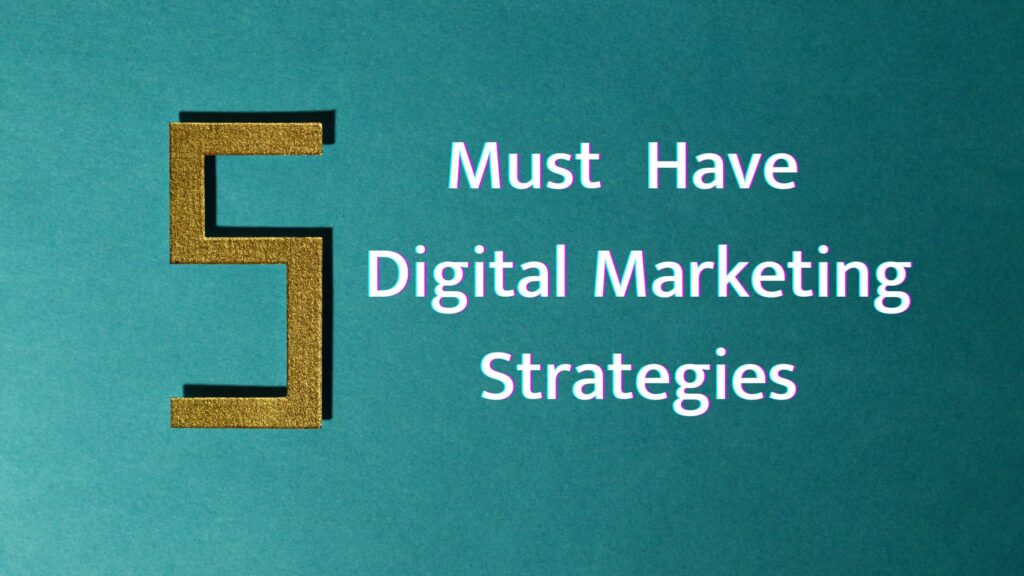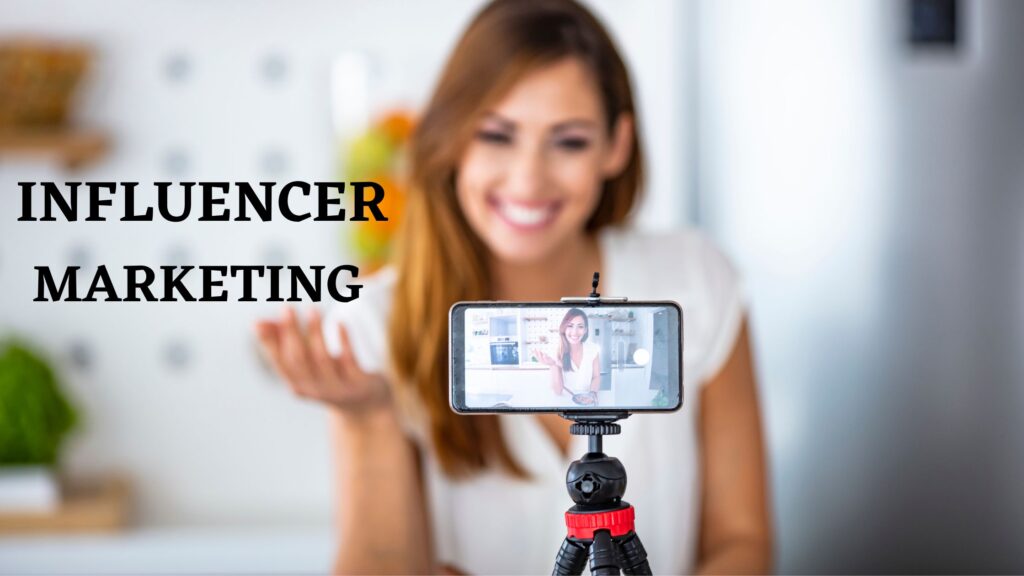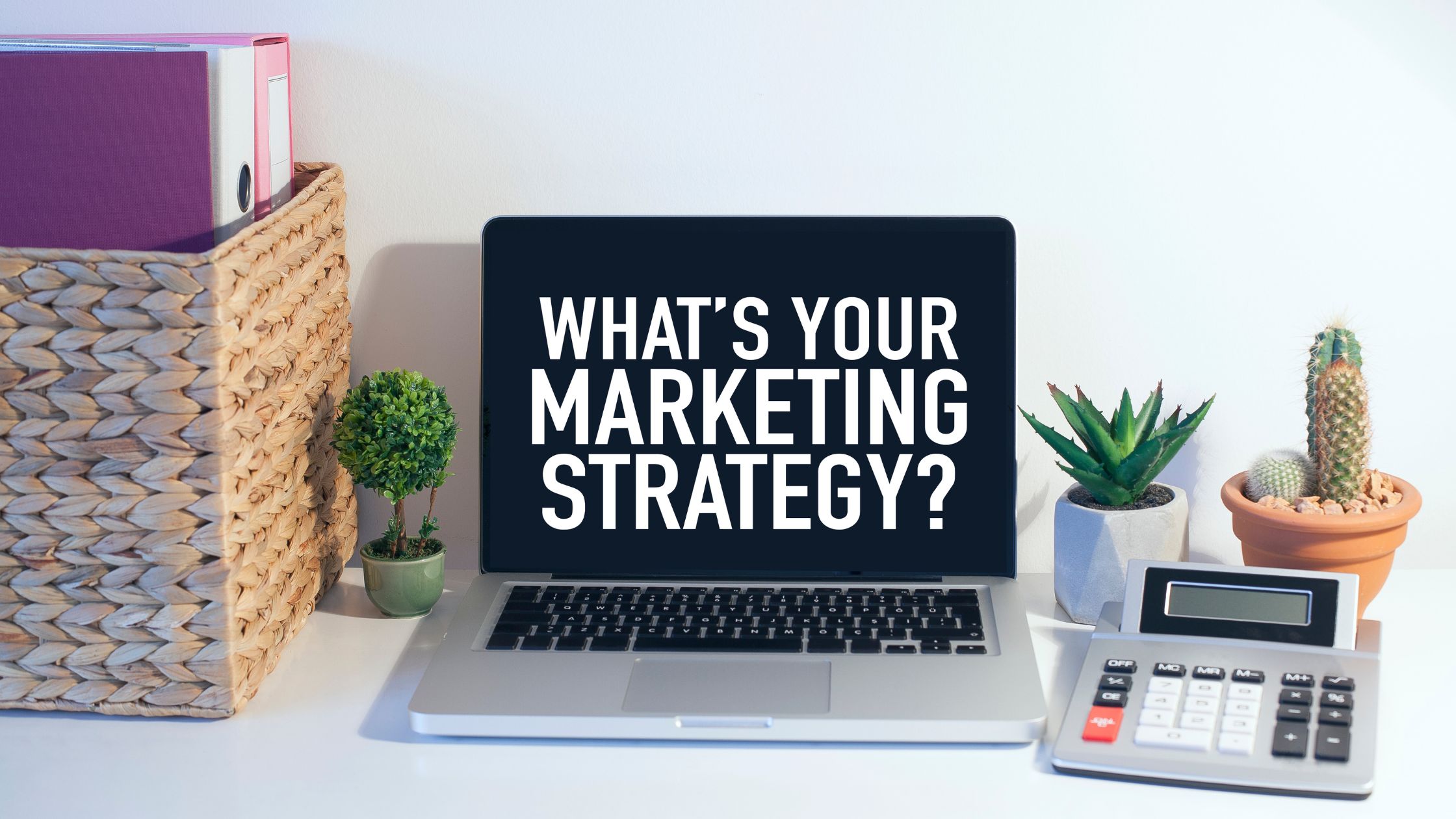Any follow-ups can be nerve-wracking especially when it comes to B2B sales. There are two questions here: what content should be put in follow-up...
According to a recent survey, 37% of online startups fail within the first two years. One of the biggest reasons for this failure is the lack of effective digital marketing strategies.
In today’s digital age, it’s more important than ever for startups to have a solid online presence to succeed. However, with so many options and channels to choose from, it can be difficult to know where to focus your efforts.
In this blog post, we’re going to take a look at 5 must-have digital marketing strategies that will help your startup thrive in 2023.
What is a Digital Marketing Strategy?
The digital world is constantly evolving and your competition is fierce. To truly stand out and make an impact, you need to have a clear understanding of who your target audience is, what they’re looking for, and how you’re going to reach them. That’s where a digital marketing strategy comes in.
A digital marketing strategy is like a blueprint for your business’s online presence. It is a comprehensive plan that outlines how a business will use various digital channels, such as search engines, social media, email, and websites, to achieve its marketing and business goals. It is designed to help businesses reach, engage and convert their target audience using various tactics.
5 Must-Have Digital Marketing Strategies

Now that you have a clear understanding of what a digital marketing strategy is and why it is so important for your startup, let’s dive into the top 5 digital marketing strategies that will help your business stand out in 2023.
- Invest in Search Engine Optimization (SEO)
SEO is the process of optimizing your website to rank higher in search engine results. This is crucial for startups, as it can help to increase visibility and drive more traffic to your website. According to a study by BrightEdge, organic search drives 53% of website traffic.
The 3 components of SEO are:
Keyword Research: To optimize your website for search engines, you first need to understand the keywords and phrases that your target audience is using to find businesses like yours. Use tools like Google Keyword Planner, Ahrefs, and SEMrush to research keywords and find opportunities for optimization.
On-Page Optimization: Once you have a list of relevant keywords, it’s time to optimize your website’s on-page elements, such as headlines, meta tags, and images. Make sure to include your keywords in these elements and create unique, high-quality content that answers the questions and needs of your target audience.
Link Building: In addition to on-page optimization, link building is an important aspect of SEO. Backlinks from other websites can help improve your website’s visibility and search engine rankings. Reach out to other websites and ask them to include links to your site in their content, or consider guest blogging or creating valuable resources that other websites might want to link to.
- Develop a Strong Social Media Presence
Social media is a powerful tool for startups to connect with their target audience. Platforms like Facebook, Instagram, and Twitter provide a great way to build brand awareness, engage with customers, and drive traffic to your website. Make sure to create a consistent brand voice and post regularly to keep your followers engaged. According to a study by Sprout Social, 78% of consumers who have had positive social media interactions are likely to buy from the brand.

The 3 major components of social media marketing are:
Platform Selection: With so many social media platforms available, it’s important to choose the ones that are most relevant to your business and target audience. For example, if you’re targeting young adults, Instagram and TikTok might be more effective than LinkedIn.
Content Creation: Once you’ve chosen your platforms, it’s time to create content that will engage and attract your target audience. Use a mix of text, images, and video to create compelling and shareable content that highlights your brand and products or services.
Advertising: In addition to the organic content, social media advertising can help boost your reach and visibility. Platforms like Facebook, Instagram, and Twitter offer a variety of ad formats, such as sponsored posts, carousel ads, and stories, that can help you target specific audiences and achieve specific objectives. By using social media advertising, you can reach new audiences, increase website traffic, and drive conversions.
- Utilize Email Marketing
Email marketing is still one of the most effective ways to reach and engage with customers. According to a study by Hubspot, email marketing has an ROI of $36 for every $1 spent. Use email marketing to build relationships with your target audience, promote your products or services, and drive traffic to your website.
The 3 crucial components of email marketing are:
Building a Subscriber List: Email marketing is a powerful tool for building relationships with your customers and driving conversions. In order to be effective, however, you need to have a list of subscribers who have opted in to receive your emails. Offer incentives, such as a discount or free resource, to encourage people to sign up for your email list.
Crafting Emails: Once you have a list of subscribers, it’s time to start crafting emails that will engage and convert them. Use a clear and compelling subject line, include a clear call to action, and segment your list to ensure that each email is tailored to the recipient’s interests and needs.
Automation and Personalization: To take your email marketing to the next level, consider using automation and personalization. Automation allows you to send targeted emails based on specific actions or behaviors, such as abandoning a cart or signing up for your email list. Personalization, on the other hand, involves using data to create personalized experiences for each subscriber.
- Use Influencer Marketing

Partnering with influencers in your industry can help to increase brand awareness and credibility. Use influencer marketing to promote your products or services, and drive traffic to your website. According to a study by Influencer Marketing Hub, influencer marketing campaigns have an average ROI of $5.78 for every dollar spent.
Let’s take a look at the 3 main components of Influencer Marketing:
Identifying Influencers: Influencer marketing involves partnering with individuals who have a significant following on social media or in a specific niche. To be effective, it’s important to identify influencers who align with your brand and whose followers are likely to be interested in your products or services.
Collaboration and Campaigns: Once you’ve identified influencers, it’s time to start planning collaborations and campaigns. Work with the influencer to create content that will showcase your products or services in an authentic and engaging way.
Measuring the Success: Measuring and evaluating the success of your influencer marketing campaigns is important to determine their effectiveness and identify areas for improvement. It also helps you demonstrate ROI to stakeholders. Metrics such as engagement, reach, conversions, and brand awareness can be tracked to gather data and make data-driven decisions.
- Use AI-Powered Marketing
With its ability to process large amounts of data and make accurate predictions, AI can help startups gain a competitive edge in the market. According to Deloitte, a stunning 73% of businesses utilizing AI believe it’s “very” crucial to their success.
The three major components of AI marketing are:
Data Collection and Management: The process of collecting and managing large amounts of data, including customer behavior and engagement, AI algorithms then use to make informed decisions and recommendations.
Predictive Analytics: The ability to analyze data patterns and make predictions about future customer behavior, which can be used to optimize marketing efforts and increase conversion rates.
Personalization: The ability to tailor marketing efforts to individual customers based on their behavior and preferences, which can increase customer engagement and loyalty. Personalization can include things like personalized email campaigns, dynamic website content, and targeted advertisements.
Conclusion
In conclusion, digital marketing is essential for startups to succeed in today’s highly competitive business landscape. By utilizing the above-mentioned strategies, startups can increase their visibility, drive more traffic to their websites, and ultimately boost their revenue.
However, as a startup, it can be challenging to navigate the complex world of digital marketing on your own. That’s why we’re here to help. Our team of experts is dedicated to helping startups as yours succeed by creating customized digital marketing strategies that deliver results.
Contact us now and let’s work together to achieve your business goals in 2023 and beyond.




